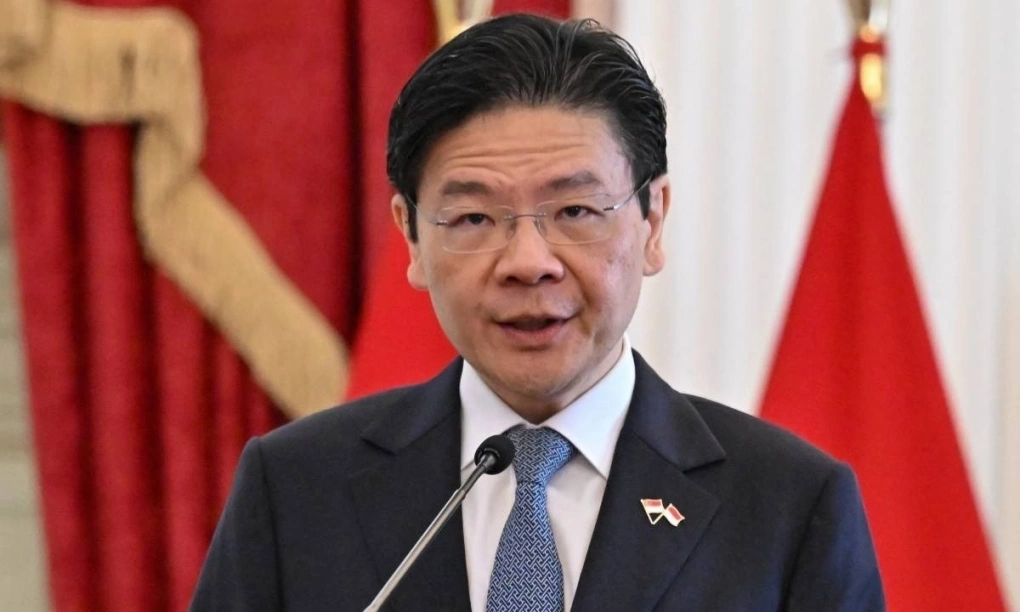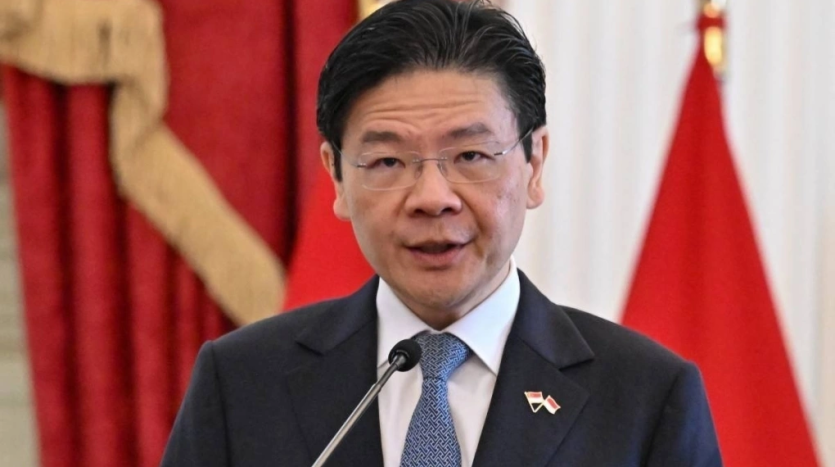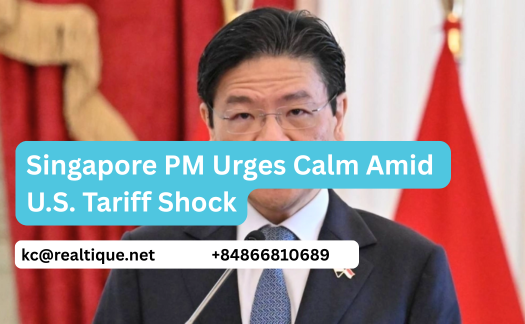Singapore PM Urges Calm Amid U.S. Tariff Shock
Facing U.S. tariffs, PM Wong calls on Singaporeans to stay united. A new task force aims to secure trade stability and regional cooperation.

Table of Contents
PM Lawrence Wong’s Call for Courage as Singapore Faces U.S. Tariff Pressure
Singapore’s Prime Minister Lawrence Wong has urged citizens not to panic in the face of increasing global uncertainty. In a speech before Parliament and a viral social media video, Wong responded to the growing threat of U.S. protectionism, emphasizing that Singapore will remain steady and united through the coming challenges.
In a video posted on April 4, which garnered over a million views, Wong issued a strong yet calm message. He asked Singaporeans to prepare for a more volatile world, where global institutions are weakening and international norms are eroding. “More nations are acting out of narrow self-interest,” he said. “They are using pressure or force to advance their goals. This is the harsh reality we must face.”
A Strategic Response to Shifting Trade Norms
The warning came in response to new U.S. tariff policies under President Donald Trump. These changes risk upending the same multilateral trade system that the U.S. once championed. Wong’s message emphasized that Singapore must adapt strategically without fear.
Speaking before Parliament on April 8, Wong reiterated that Singapore must stay resilient, just as it has done through past crises. He reminded lawmakers of the nation’s key strengths—its pragmatism, intelligence, courage, and unwavering spirit.
“These qualities helped us through past crises and will carry us through new ones,” he stated. “So I urge this House and all Singaporeans—do not be afraid.”
The Real Risks of Isolationism
Wong’s message was not just about national morale. It reflected a deep concern about structural changes in global trade. If more countries abandon multilateral agreements and shift to bilateral deals, small states like Singapore—with limited bargaining power—may be left behind.
Experts warn that these trends could resemble the Great Depression of the 1930s, when rising tariffs triggered global retaliation and trade collapsed. But today, the risks may be even higher. Global supply chains are more interconnected, and trade plays a far greater role in national economies. Any disruption could have serious ripple effects.
Though it’s too early to assess the full impact of U.S. tariffs on global trade and the American economy, one consequence is already visible: a drop in business and consumer confidence. This could hurt investment and slow international commerce, including in countries like Singapore that depend heavily on external markets.
A Proactive Plan, Not Just a Warning
Wong’s speech, though serious in tone, was not bleak. He assured the public that Singapore is not standing still. Along with his warning, he announced the formation of a multi-agency task force to track developments and act on new trade and economic opportunities.
Led by Deputy Prime Minister Gan Kim Yong, the task force includes representatives from key government agencies, businesses, labor unions, and industry bodies. It will monitor the evolving tariff situation, evaluate its impact, and explore solutions to protect Singapore’s economic interests.
Gan said the team’s role extends beyond analysis. It will actively engage with companies and workers to understand their challenges and identify areas where government support is most needed.
Thinking about investing in Vietnam’s real estate market?
📩 Let Realtique guide you with expert insights, trusted advice, and tailored property options for overseas investors.







